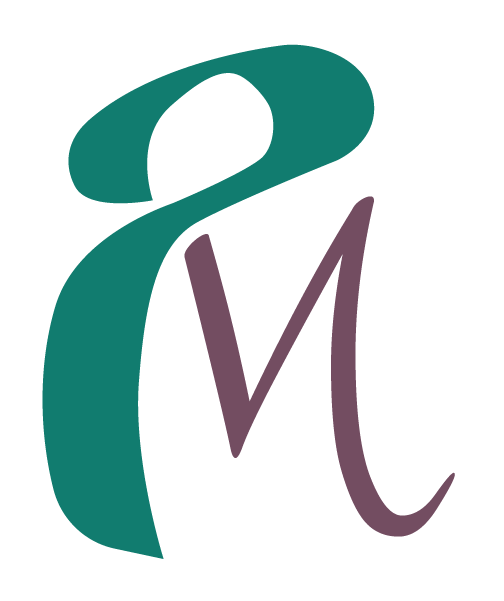Navigating Publishing Your Own Book
How do you go about bringing your book to readers? Whether your book is fiction or nonfiction, there are several options you may consider. This post is all about how to navigate publishing your own book, including whether to work with a traditional publishing house or to self-publish.
One book we’d recommend for anyone planning to publish their own book is Perfect Bound: How to Navigate the Book Publishing Process Like a Pro by Katherine Pickett. This guide will walk you through the stages and help you to understand what is involved, including costs and ways to keep your expenses low.
Traditional Publishing
For many writers, the allure of traditional publishing lies in the validation and expertise that established publishing houses bring to the table. Here are some advantages of pursuing the traditional route.
Validation and Prestige: Being published by a reputable publishing house can lend an air of legitimacy to your work. It often comes with a stamp of approval that can be appealing to readers, literary agents, and bookstores.
Editorial Support: Traditional publishers provide professional editors who can help refine your manuscript, ensuring it reaches its full potential. This collaborative process often results in a polished final product.
Distribution and Marketing: Established publishers have well-established distribution channels and marketing networks. Your book is more likely to reach a broader audience through traditional channels, including bookstores and libraries.
However, traditional publishing has its drawbacks:
Submission and Acceptance Process: Getting a traditional publishing deal can be a lengthy and competitive process. Rejections are common, and it may take months or even years before your book sees the light of day.
Loss of Creative Control: Once signed with a traditional publisher, you may have less control over certain aspects of your book, such as cover design, title, and marketing strategy.
You may want to work with publishers through an agent, a professional who represents you and your interests in negotiations with publishers and others involved in the publication of your book. To find agents, consider exploring the Publishers Marketplace database (it’s a $25/month subscription but worthwhile). Also refer to Sarah Cypher’s short crash course article to understand how to get the most of out it. On working with agents, we recommend: The Business of Being a Writer by Jane Friedman.
If you want to move forward with traditional publishing for a scholarly book manuscript, we recommend the following for drafting your book proposal: *The Book Proposal Book: A Guide for Scholarly Authors *by Laura Portwood-Stacer. Laura also provides a newsletter and online and in-person classes and workshops. Another resource you may find helpful is *Getting It Published *by William Germano.
Self-Publishing
In recent years, self-publishing has gained popularity as a viable alternative for authors seeking more control over their work. Here are some advantages of self-publishing.
Speed and Control: Self-publishing allows you to set your own timeline for publication. You have complete control over creative decisions, including cover design, formatting, and marketing strategies.
Higher Royalties: With self-publishing, you typically receive a higher percentage of royalties per book sold compared to traditional publishing contracts. You can also set up your own bookstore to sell your books without giving up royalties (although there are processing fees to consider, they’re still lower than vendor royalties).
Accessible to Everyone: Self-publishing platforms have made it easier for writers from all walks of life to share their stories with the world. It democratizes the publishing process, allowing anyone with a story to tell to become an author.
You get to choose your publishing team.** **With self-publishing, authors can self select the members of their publishing team versus being assigned editors and cover designers by a publisher. While this may not seem like a big deal initially, it’s essential to have a good working relationship with your editor(s) and your graphic artist. Feeling comfortable with their skills and insights in relation to your work makes the process more enjoyable.
However, self-publishing also comes with challenges:
Initial Investment: While self-publishing eliminates the need for a literary agent, you’ll need to invest in professional services such as editing, cover design, and marketing, which can add up. Dana Sitar’s article at The Write Life lists expenses at every stage of the process. Here are the steps from this article:
Editing
Cover Design
Illustrations/Graphics
Formatting
Printing
Sales & Distribution
Launching
Based on this article, you can expect to pay between $200 and $2,000, depending on whether or not you know how to do some of the steps already, are willing to learn, or have a special connection with someone who can do them for you. One strategy for finding a reputable editor is to read titles from indie authors in your genre—then reach out to those authors and ask about their editor. The Editorial Freelancers Association has a PDF resource, Hiring an Editor: A Guide for New Authors, that provides additional insight and a list of resources at the end. Also see this Reedsy guide to self-publishing, complete with calculator.
Building an Audience: One very important element of being an independent author is marketing. Marketing and promoting your book can be a significant undertaking. Without the support of a traditional publishing house, authors must navigate the complexities of building an audience independently. For webinars on marketing and other resources, see The Authors Guild (based in New York) and the Alliance of Independent Authors (headquarters in London). Remember, it’s never too early to start connecting with future readers. Every author needs to decide what that looks like for them, as there are many approaches. This article from the Alliance of Independent authors, for example, shows what was working for several romance authors in February 2023. And…what wasn’t working. For all authors, regardless of where their work is published, the Authors Guild is a useful resource. It’s also important to note that even traditionally published authors will likely be responsible for at least a portion of attracting an audience.
Education and Community: It’s also valuable to look for author education from people in your genre who seem to have a strong following, and subsequently sales, to support your marketing efforts—whether you’re a traditionally published or self-published author. Many genres have local/national/international organizations that may provide genre-specific education for a wide array of author business topics. Writer’s Digest provides a compiled list in this article, but it may not be all-inclusive.
In addition to providing author education, genre-specific organizations can provide community for authors. Self-publishing especially can feel isolating and overwhelming; authors often feel like they have to do everything perfect in order to have a successful launch. That is not the case. With the right community, authors should be able to find “just right” support that fulfills their needs. Sometimes, these are in smaller, more intimate groups of just a few authors. There are also larger groups that cater to writers, such as the previously mentioned Alliance of Independent Authors. SavvyAuthors also provides community and education. They have a free membership tier as well as a premium level. AutoCrit also has some community features and does a lot with education, but you must have one of their Pro accounts. Facebook offers groups, as well—but beware of the size of the group and the group culture; lurking may be beneficial while exploring to find those that are the best fit for you.
If you’re a person who doesn’t require much community, podcasts might be a great resource. A favorite is the Creative Penn by Joanna Penn. Joanna has a wide array of guests to reach listeners where they are on their publishing journey.
Hybrid Publishing
Not ready to submit queries or seek agent representation? Think self-publishing seems like a lot of work and you’re not sure you’re up for the task? Take a look a hybrid publishers. But beware: These services come with a price tag. To learn more about hybrid publishing, take a look at Jane Friedman’s blog post What Is a Hybrid Publisher? It seems like every hybrid publisher has their own way of doing things, so there isn’t a hard-and-fast list of services provided. Sometimes hybrid publishers are quite a bit like project managers: They’ll make sure everything is done, on time, and your book is ready to publish. Others are more à la cart, where the author can select the services they need most.
Due Diligence
You’ve written a book and now you’re ready for the world to see it. Whether you opt for querying agents or publishers, using a hybrid publisher, or independently publishing, make sure you’re researching the individuals with whom you’re communicating. Writer Beware has some great blog posts and keeps current scams at the forefront, giving authors somewhere trustworthy to search. Established in 1998, they’ve got decades of experience calling out suspect business practices. You can also check the forums at Absolute Write. If you’re in the United States, it’s also a good idea to search the Better Business Bureau; if you know the state in which the entity operates, you can also look for a consumer complaint search for that state.
Here are some service providers as you contemplate your next steps:
• Looseleaf Editorial & Production | Formatting, typesetting. Specialties in science fiction, fantasy, romance books
• Marhaba Language Expertise | Editing (academic and literary), translation (Arabic to English)
• Pique Publishing, Inc. | Cover design, formatting/typesetting, printing
• Purple Pen Wordsmithing, LLC | Editing (romance and educational texts), copywriting
Feel free to get in contact for further ideas for your book project!
Written by Wendee Mullikin and Melanie Magidow.
Wendee Mullikin is the founder and chief editor at Purple Pen Wordsmithing. She has been editing romance since 2012 and has over 200 titles in her CV. Wendee has bylines—including several romance novels under a pen name—in fiction and education-centered nonfiction. You can connect with her via her website.
Melanie Magidow | After a decade teaching Arabic in colleges and universities, Dr. Melanie Magidow manages Marhaba Language Expertise, offering: Translation (Arabic to English), Editing (English), and Consulting in Arabic language, literature, and culture. Contact page here.






